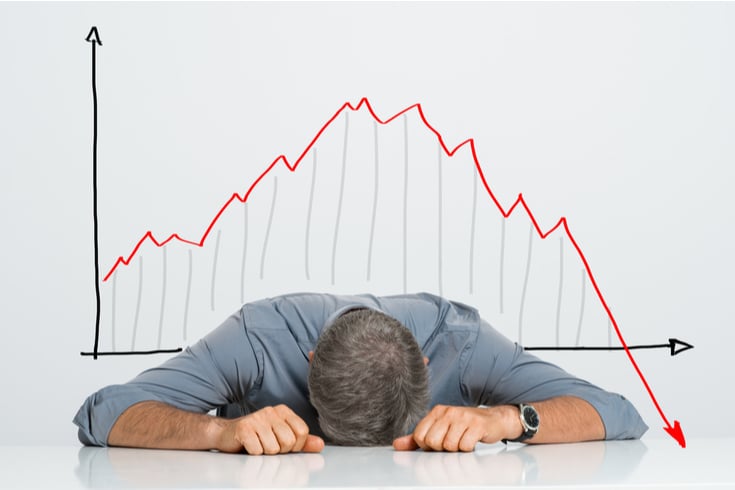Can You Claim Compensation for Property Damage Due to Suspension of Transactions or Decrease in Sales Caused by Defamation?

If your rights have been violated due to an illegal act, you can claim damages from the offender once the illegality of the act is recognized in court.
In typical defamation lawsuits, the damages recognized are limited to the compensation for emotional distress suffered by the plaintiff due to the defamation. It is rare for economic damages such as lost profits to be recognized.
Damage caused by defamation that lowers the social evaluation of the economic aspects of a company or similar entity can extend beyond intangible damages. It can also include economic damages such as cessation of transactions or decrease in sales due to loss of credit.
How are economic damages other than compensation for emotional distress and intangible damages treated in cases of defamation?
We will explain in detail based on actual court cases.
https://monolith.law/Japanese reputation/netslander-against-companies[ja]
https://monolith.law/Japanese reputation/honor-infringement-and-intangible-damage-to-company[ja]
Lawsuit Claiming Intangible and Property Damages

A corporation engaged in the manufacture and sale of contact lenses claimed that its product’s reputation and social evaluation were damaged due to flyer distribution at sales outlets and explanations at affiliated ophthalmology clinics. The company sought compensation for intangible and property damages based on tortious acts.
https://monolith.law/reputation/trust-damage-crime-establishment[ja]
Progress of the Lawsuit
The plaintiff argued that the following actions were routinely carried out at the defendant’s store, damaging their social evaluation and credibility:
- Distribution of flyers stating, “Our product has a low water content and thin lenses. Therefore, there is a possibility of trouble such as the surface cells of the cornea (pupil) dying and peeling off due to lack of oxygen.”
- Explanations at the affiliated ophthalmology clinic that the product “can easily damage the eyes,” “may cause inflammation,” and “is prone to tearing.”
The defendant’s store sold contact lenses based on prescriptions issued by doctors at the affiliated ophthalmology clinic almost 100% of the time. The prescription details were entered into a computer by the clinic staff, and the data was shared with the adjacent store, with close information exchange taking place.
Claimed Damages by the Plaintiff
The plaintiff claimed that the defendant’s defamation of their product significantly lowered their social evaluation and credibility, causing them substantial intangible damage. They sought 10 million yen in compensation.
For property damage, they claimed that the damage amount due to the infringement of operating profit for the 11 months from September 2003 (Heisei 15) to the filing of the lawsuit was 120 million yen. They demanded payment of 50 million yen, which is a part of it.
The plaintiff sought a total of 60 million yen, 10 million yen for intangible damage and 50 million yen for property damage.
Judgment of the Court

The court concluded, “The parts of the flyer and explanation pointed out by the plaintiff indicate the following three facts, all of which can be said to lower the plaintiff’s social evaluation and credibility.”
- It is more prone to tearing compared to other products. (Gives customers the impression that it is of inferior quality compared to other products)
- It is more likely to damage the eyes compared to other products. (Gives customers the impression that it is a dangerous product that could harm the eyes)
- There is a possibility that the surface cells of the upper part of the cornea will die and peel off due to lack of oxygen when used. (Gives customers the impression that it is a dangerous product that could damage the eyes)
The court stated, “None of these can be recognized as true, and it cannot be recognized that the defendants had reasonable reasons to believe these facts were true.” Recognizing defamation, the court ruled:
Considering the content of the flyer and the explanation, the impression it gives to general customers, the plaintiff’s social status, the manner of the defendants’ tortious acts, and all other circumstances revealed in this case, it is appropriate to recognize the non-property damage suffered by the plaintiff as 5 million yen.
Tokyo District Court, April 26, 2006 (Heisei 18) Judgment
Furthermore, regarding property damage, the court ruled:
It is inevitable to say that calculating the amount of property damage involves considerable difficulty due to its nature. Considering all these things comprehensively, it should be said that the plaintiff’s property damage falls under the case where it is extremely difficult to prove the amount of damage due to its nature (Article 248 of the Civil Procedure Law).
Therefore, this court will determine the amount of damage equivalent to the plaintiff’s operating profit based on the overall argument and the results of the evidence examination as 10 million yen.
Tokyo District Court, April 26, 2006 (Heisei 18) Judgment
The court ordered the defendant to pay a total of 15 million yen, 5 million yen for non-property damage and 10 million yen for property damage.
The Article 248 of the Civil Procedure Law mentioned here states:
In cases where it is recognized that damage has occurred, if it is extremely difficult to prove the amount of damage due to its nature, the court may determine a reasonable amount of damage based on the overall argument and the results of the evidence examination.
Article 248 of the Civil Procedure Law
The Supreme Court also recommends actively utilizing Article 248 of the Civil Procedure Law.
Summary
Calculating the amount of financial damage caused by defamation can be considerably difficult due to its nature, and there are many cases where it is not recognized.
Courts should actively utilize Article 248 of the Japanese Civil Procedure Law (Minji Sosho Ho).
Even when initiating a lawsuit, it is necessary to calculate the amount of damage claimed, and the preparation of evidence and other documents is also important.
For such complex matters, it is advisable to promptly seek the assistance of a specialized attorney.





















